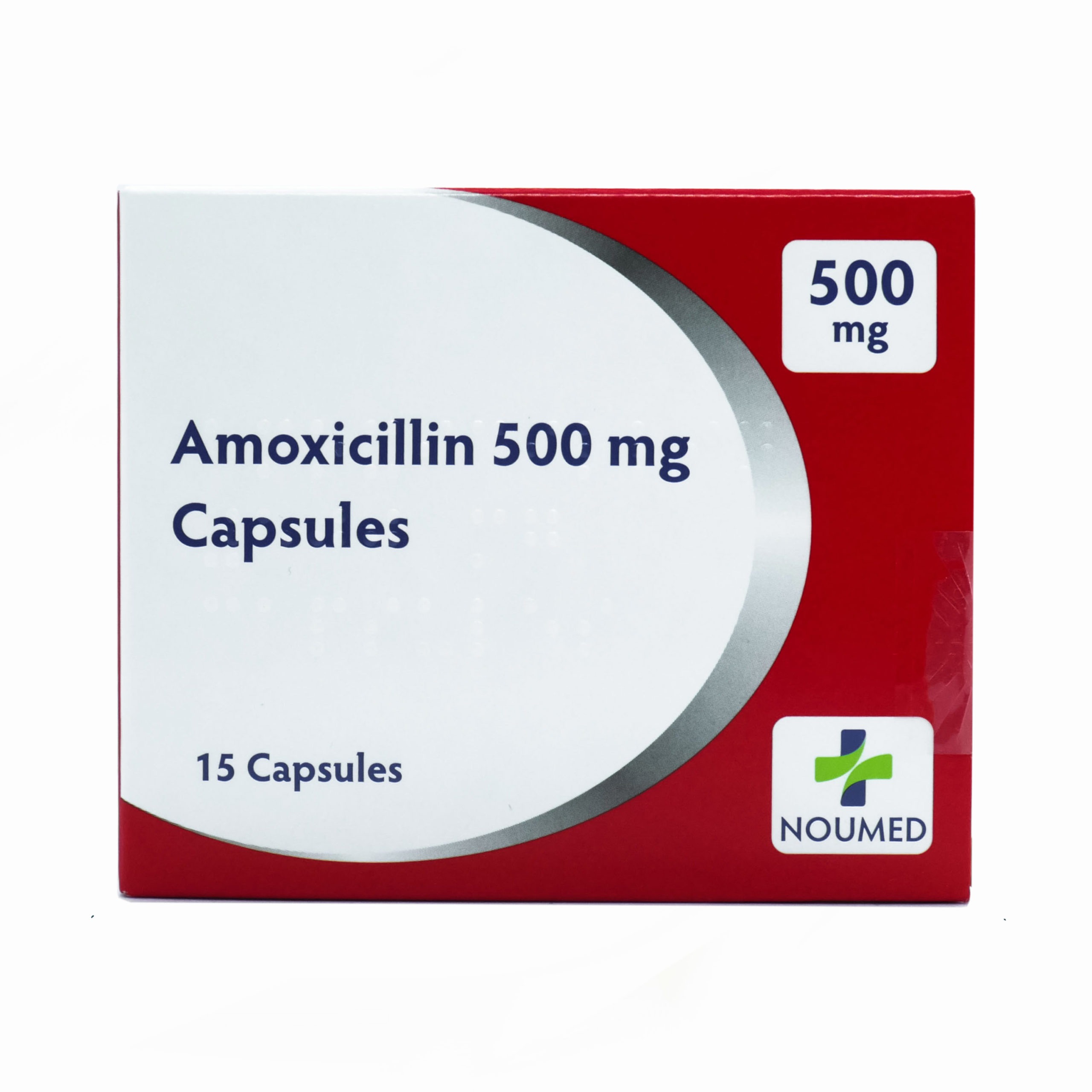Amoxicillin

Fastest delivery:
Order by 12:00pm
-

GMC and GPhC-regulated clinicians
Expert care from GMC and GPhC-regulated clinicians. Trust in professional medical advice and treatments tailored to your needs.
-

100% UK-based pharmacy
Our team of doctors and prescribers, and our support staff, are all UK-based.
-

Free support and advice
We're on hand to offer free support and advice by email and telephone (Mon - Fri 08:30 - 17:00).
-

GP-Led Prescribing
Expert care from GP-led clinicians. Receive professional, trusted medical advice and treatments tailored to your needs.
Description
What is Amoxicillin?
Amoxicillin is used in the treatment of various bacterial infections. It's categorised as a penicillin-type antibiotic. It basically stops bacteria from further growing. The medicine is only used to treat bacterial infections. It's not to be used for viral infections as it will not work. Any use of an antibiotic when it isn't needed can make it not work for future infections. When combined with other medications, Amoxicillin can also be used to treat stomach/intestinal ulcers that result from the bacteria H. pylori. It can also prevent the ulcers from recurring.
How Does Amoxicillin Work?
Bacteria are microscopic single-cell microbes that surround us. Some of them are helpful, for instance, some bacteria in help in the breakdown of food in the intestines. However, when some bacteria enters the body either through the airway, mouth, eyes, or urogenital openings, they can cause infections. Amoxicillin works by inhibiting the growth and reproduction of bacteria. It kills them and relieves the body from all the symptoms of bacterial infections.
It is most commonly used to treat nose, ear, and throat infections, skin infections, urinary tract infections, respiratory tract infections, and tonsils.
Warnings
Avoid using Amoxicillin if you are allergic to penicillin or any of its ingredients.
- Caution is advised for those with kidney problems, as the dose might need adjustment.
- Pregnant or breastfeeding individuals should consult a doctor before use.
- Possible interactions with other medications; inform your doctor of any other drugs you are taking
- Inform your doctor of any underlying medical conditions.
- Inform your doctor of any past or present prescription medication you are currently using.
- Inform your doctor of any allergic reactions you may be experiencing.
- Do not share you're your medication with others even if they have similar symptoms.
Directions
Follow the instructions given by your doctor, or read the information provided on the product label. For adults and children over 40kg, the usual dose is 250-500mg three times daily. The dose may vary based on the infection's severity.
- Take the medication at the same time every day.
- You can take some forms of amoxicillin with or without food.
- Swallow the regular tablet with plenty of water without chewing or crushing.
- If you are taking a chewable tablet, crush and chew it before swallowing.
- If you are using the oral suspension, shake it well before use to mix it evenly, and take it immediately.
- Take your doses for the full length of time as directed by your doctor without fail even if the symptoms disappear sooner until you finish your subscription.
Ingredients
Colloidal Anhydrous Silica and Magnesium Stearate, Iron Oxide Yellow, Gelatin, Carmoisine, Quinoline Yellow, and Titanium Dioxide.
Side Effects
Common side effects may include:
- Nausea
- Diarrhea
- Skin rash
Uncommon side effects are vomiting, yeast infections, and dizziness. Rare but severe side effects can include allergic reactions, kidney problems, or severe skin reactions. Consult a doctor immediately if severe side effects occur
FAQs
1. How should I take Amoxicillin?
Take the capsules orally with water, without chewing. The usual dose for adults and children over 40kg is 250-500mg three times a day, spaced evenly at least 4 hours apart. Severe infections may require higher doses
2. How long should I use Amoxicillin?
Complete the full course prescribed by your doctor, even if you start feeling better. Stopping early can cause the infection to return or worsen.
3. What should I do if I miss a dose?
If you miss a dose, take it as soon as you remember. Do not take a double dose to make up for the missed one; wait at least 4 hours before taking your next dose.
4. Are there any side effects?
Common side effects include nausea, diarrhea, and skin rash. Less common effects are vomiting, yeast infection, or dizziness. Severe side effects are rare but include allergic reactions and liver problems.
5. Can anyone use Amoxicillin?
Not everyone can use Amoxicillin. It should be avoided by those allergic to penicillin or with certain medical conditions like kidney or liver issues. Pregnant or breastfeeding individuals should consult their doctor before use


